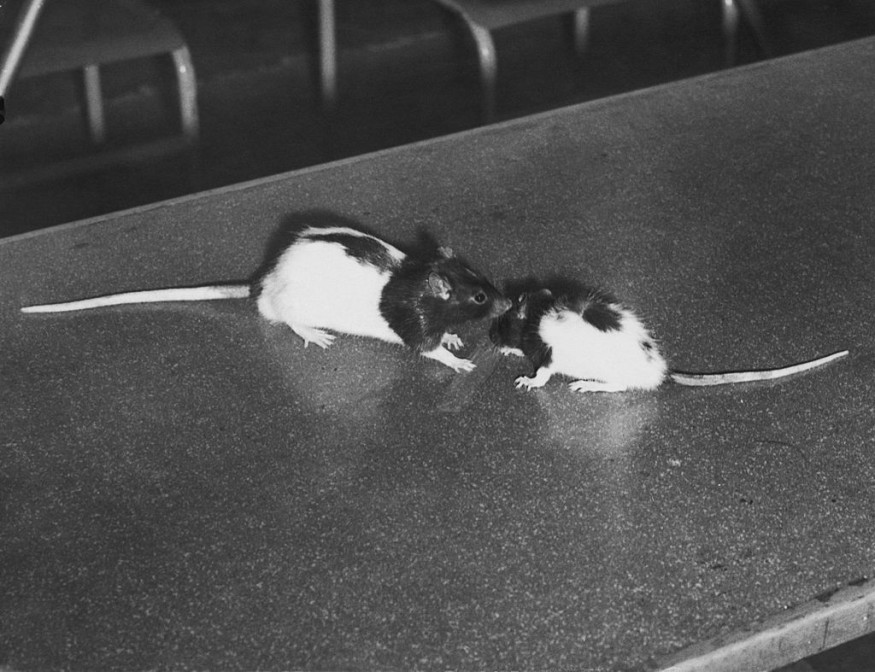
An interesting, non-invasive therapy has been shown to be effective in rodents with liver malignancy.
Experts have employed targeted ultrasonography to eliminate up to 75% of the mass of a malignant melanoma. The medication apparently appears to activate the rodents' immunity, causing them to take over and eliminate the remainder.
The tumor appeared to be eradicated in 80% of the rats, showing any indication of metastasis or relapse in the three months that were observed, according to the investigators.
Non-Invasive Treatment for Liver Cancer Tested in Rats
The diagnosis, known as histotripsy, is undergoing testing on individuals suffering from liver tumor.
According to ScienceAlert update, University of Michigan biomedical expert Tejaswi Worlikar affirmed that histotripsy is a potential approach which could transcend the limits of presently known eradication methods and deliver secure & successful non-invasive disease diagnosis elimination.
Not merely could the therapy go off nary a hitch, but the preponderance of the rodents, that is about nine out of eleven subjects which have also demonstrated malignant reduction and tumor-free life for the duration of the research, which lasted about 10 weeks.
The authors of the study also noted how the research article exhibited the great promise of histotripsy for productive non-invasive cancer cell excision as well as avoidance of native tumor progression and metastasis.
Albeit with provisional excision, comprehensive malignant transformation analysis was recognized in 9 of 11 intervention rodents, without hardly a occurrence or metastatic spread up to the 12-week analysis node, as illustrated by MRI and histopathology.
A further three rodents were handled to a minor level, with histotripsy addressing just 25% of the disease activity. The ultrasonic sensor, crafted provides heightened sensitivity microsecond-length ultrasonographic signals - audible delamination - to concentrate on cancerous cells explicitly to split it up, as said by biomedical engineer Zhen Xu of the University of Michigan.
However, if researchers do not identify the complete meningioma, researchers could perhaps affect it to backslide and lower the peril of potential tumor growth.
Histotripsy, which was established and launched at the University of Michigan, appears to provide great beginning for individuals suffering from one of the worst kinds of malignancy: the five-year survivability ratio for hepatocellular carcinoma is now less than 18% in the United States.
Furthermore, specialists anticipate that the findings from this investigation will inspire further experimental as well as therapeutic histotripsy research, with the overall purpose of medical acceptance of histotripsy medication for individuals with hepatocellular carcinoma.
Safety of The New Liver Cancer Treatment
Earlier histotripsy research has shown that the therapy is successful in lowering disease activity. However, the investigators discovered that even limited therapy led in total relapse in 81% of the rodents administered.
In which 50 % of people were kept as a study sample, whereas the other 11 were treatment with histotripsy, which targeted approximately 50% and 75% of the tumor mass. After medication, the rodents were killed and examined to ascertain the effectiveness of the therapy.
While as shown in the study published under the journal of Cancers, it shows that it operates by ultrasonic oscillation, which is comparable to the process employed to non-invasively disintegrate lipids for weight-loss therapies. In comparison, all of the experimental animals had cancer growth.
Such findings recommend that, when contrasted to restraints, histotripsy might not even boost the threat of evolving metastatic disease after excision. 22 test subjects were injected with hepatocellular carcinoma for the purposes of the investigation, and the manner the tumors are situated, their shape, and phase could all impact if it is feasible to employ histotripsy on the complete cancer.
It is rare to be able to address the whole malignancy.
Related article : 2 California Mountain Lion Kittens Died from Rat Poison
© 2025 NatureWorldNews.com All rights reserved. Do not reproduce without permission.




